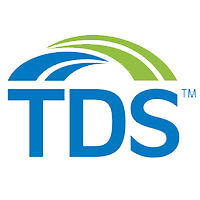Don’t let cyber-attacks haunt you: Tips from TDS to stay safe
TDS Telecommunications LLC (TDS®) is taking the month of October, National Cybersecurity Awareness Month, to educate consumers on how to avoid being a victim of online crime.
“To limit the threats to your data, always be aware that scammers never stop attempting to infect your devices or trick you into giving up sensitive and personal information like passwords or social security numbers,” said TDS’ Vice President of Information Technologies Karl Betz.
“It’s also important to remember that the age of Artificial Intelligence (AI) is here and while this new technology offers so many great benefits, bad actors are using it as well to replicate voices and create deep fakes which can effectively deceive people,” said Betz. “The best way to fight against enhanced threats posed by AI is to remain vigilant with good internet security practices and overall awareness of these risks.”
Here are four internet security practices to help you stay safe online:
1. Use Strong Passwords
Strong passwords are long (at least 12 characters), random, unique and include all four-character types (uppercase, lowercase, numbers and symbols). Password managers are a powerful tool to help you create and store strong passwords for each of your accounts.
2. Recognize and Report Phishing (email), Vishing (voice), and Smishing (text)
Be cautious of unsolicited messages asking for personal information or asking you to respond quickly and by a deadline. Avoid sharing sensitive information or credentials with unknown sources. Report phishing attempts to the Anti-Phishing Working Group at reportingphishing@apwg.org and delete the message. Do not trust everything you see on the internet, especially social media, and be cautious about clicking on links as they may be infected with malware.
3. Update Software
Ensuring your software is up to date is the best way to make sure you have the latest security patches and updates on your devices. Regularly check for updates if automatic updates are not available.
4. Turn on Multifactor Authentication (MFA)
You need more than a password to protect your online accounts and enabling MFA makes you significantly less likely to get hacked. You will see this with most financial institutions that text a code to your mobile device. Enable MFA on all your online accounts that offer it, especially email, social media, and financial accounts.
###
Please note: Karl Betz is available for media interviews. To set up an interview time, please contact: Cheryl McCollum | Associate Manager - Communications | TDS Telecom |cheryl.mccollum@tdstelecom.com


